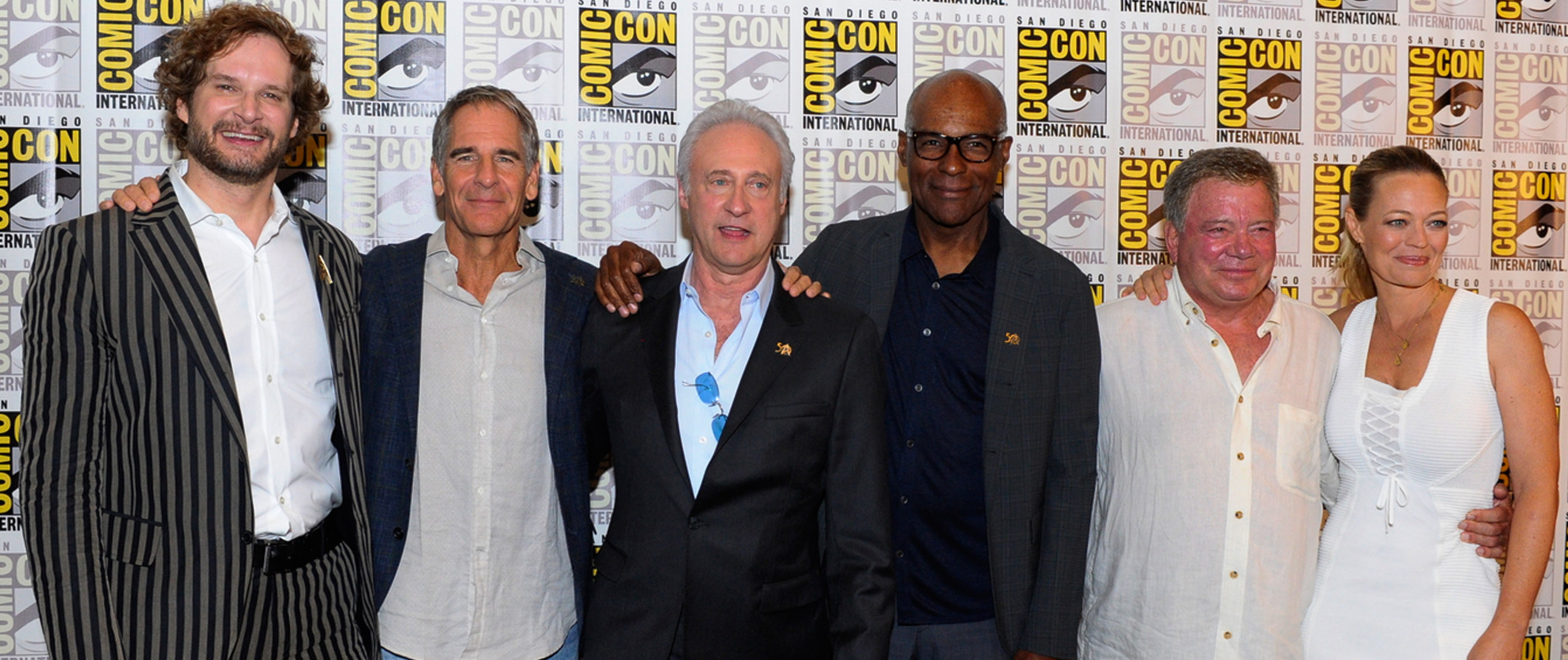'Star Trek' Stars Celebrate 50 Years of Hope at Comic-Con

The last year has been a tough one for "Star Trek" — with the deaths of actors Leonard Nimoy and Anton Yelchin — as it has been for the world at large.
Amid the sadness, five "Star Trek" actors gathered at Comic-Con International in San Diego in July to repeat their franchise's eternal message of hope and respect for all peoples regardless of nationality, planethood or economic background. The panel was commemorating the 50th anniversary of "Star Trek."
"I think 'Star Trek,' in general, has been about individual rights," said Brent Spiner in the panel, which is available on YouTube. His "Star Trek: The Next Generation" (TNG) character, Data, had his rights as an android challenged in a famous episode called "The Measure of a Man." [13 Things Star Trek" Gets Right (and Wrong) About Space Tech)]
"We are living in a world right now where that sort of respect is being challenged," he added. "Not just all over the world, but in our country, too. It's disturbing, and I think our politicians and our fellow citizens should take a page from 'Star Trek' at this point and have more respect for humanity, for all of us."
In "Star Trek: Voyager," Jeri Ryan played Seven of Nine, a member of the Borg species, which assimilates every culture it comes across. "They certainly weren't exclusionary," she pointed out, when it came to choosing cultures. But Seven of Nine was thrust into a unique situation. Her rights were violated when the Borg assimilated her, and then violated again when she was forcefully deassimilated.
In "Star Trek," these characters are never shown in just one dimension, said Michael Dorn, who played the Klingon Worf in TNG and "Star Trek: Deep Space Nine."
"The thought that [creator] Gene Roddenberry had was he wanted to show that we have moved on, that the characters have evolved and things are different enough than the way it was before," Dorn said.
Breaking space news, the latest updates on rocket launches, skywatching events and more!
Products of their times
The original "Star Trek" series is famous for portraying a forward-looking vision in the 1960s United States, when black segregation was common and the Russians were seen as Cold War enemies. Roddenberry deliberately put a black woman (Nyota Uhura) and Russian man (Pavel Chekov) on the ship's bridge to counteract those stereotypes. The ship's captain, James T. Kirk, kissed Uhura in one episode, and this interracial kiss is cited as a groundbreaking moment in television.
By TNG's time, in the 1980s and 1990s, Dorn said, the world had changed. The Berlin Wall came down, and the Russians were not seen as enemies any more. "People were caught by surprise," he said. But as a Klingon, his character experienced some bad holdovers from the past — just like the Russians did. "There were a lot of guys who didn't like Klingons, still," he said.
The panel also featured lighthearted debates about the show's evolution, including each panel member discussing his or her favorite captain. Dorn said the captains were products of their times and were perfectly suited in each case. "Kirk would go down to a planet and start punching people out, and [TNG's] Picard would sit there in his chair and say, 'Oh, what do you think, Mr. Data?'"
William Shatner, who played Kirk, said he never realized the captains' resiliency until the actor produced a documentary about the five starring television captains. The actors often worked 14-16 hours a day and put the show above family, evaporating marriages and family ties.
"Every single one of them lost things most people love and want, because of the time necessary to devote to a leading role on the series," he said.
New show hints
CBS is planning a new show called "Star Trek: Discovery" that will be available online in 2017. Bryan Fuller — a noted "Star Trek" writer who is an executive producer and showrunner for the new show — said the series will be written more like chapters of a book than individual, one-off episodes.
He also hinted that the show would remain diverse, citing a conversation he had with NASA astronaut Mae Jemison (the first African American woman to fly in space, who also appeared in an episode of TNG.) "She saw Uhura on the deck of the bridge, and that made her want to join NASA," Fuller said.
The actors additionally hailed the show's ability to predict great inventions of the future, such as communicators that foreshadowed cellphones, and the iPad-like devices on the TNG set. Scott Bakula, who played the captain on "Star Trek: Enterprise," said he really wished that the blue-gel decontamination stuff were available for real, especially if people wanted a no-consequences good time with each other. "It would be a happy, happy place," he said.
Near the panel's close, the discussion turned to tribbles, the lovable aliens that almost took over Kirk's ship in a famous episode from the first series. "It reminds you of overgrowing, the need to replenish. It reminds us of the dangers of the world," Shatner said.
Joked Fuller, "If we had a worldwide tribble population, that would solve our worldwide hunger problem."
Shatner paused a beat. "That's true. Good for us."
Follow Elizabeth Howell @howellspace, or Space.com @Spacedotcom. We're also on Facebook and Google+. Original article on Space.com.

Elizabeth Howell (she/her), Ph.D., was a staff writer in the spaceflight channel between 2022 and 2024 specializing in Canadian space news. She was contributing writer for Space.com for 10 years from 2012 to 2024. Elizabeth's reporting includes multiple exclusives with the White House, leading world coverage about a lost-and-found space tomato on the International Space Station, witnessing five human spaceflight launches on two continents, flying parabolic, working inside a spacesuit, and participating in a simulated Mars mission. Her latest book, "Why Am I Taller?" (ECW Press, 2022) is co-written with astronaut Dave Williams.

